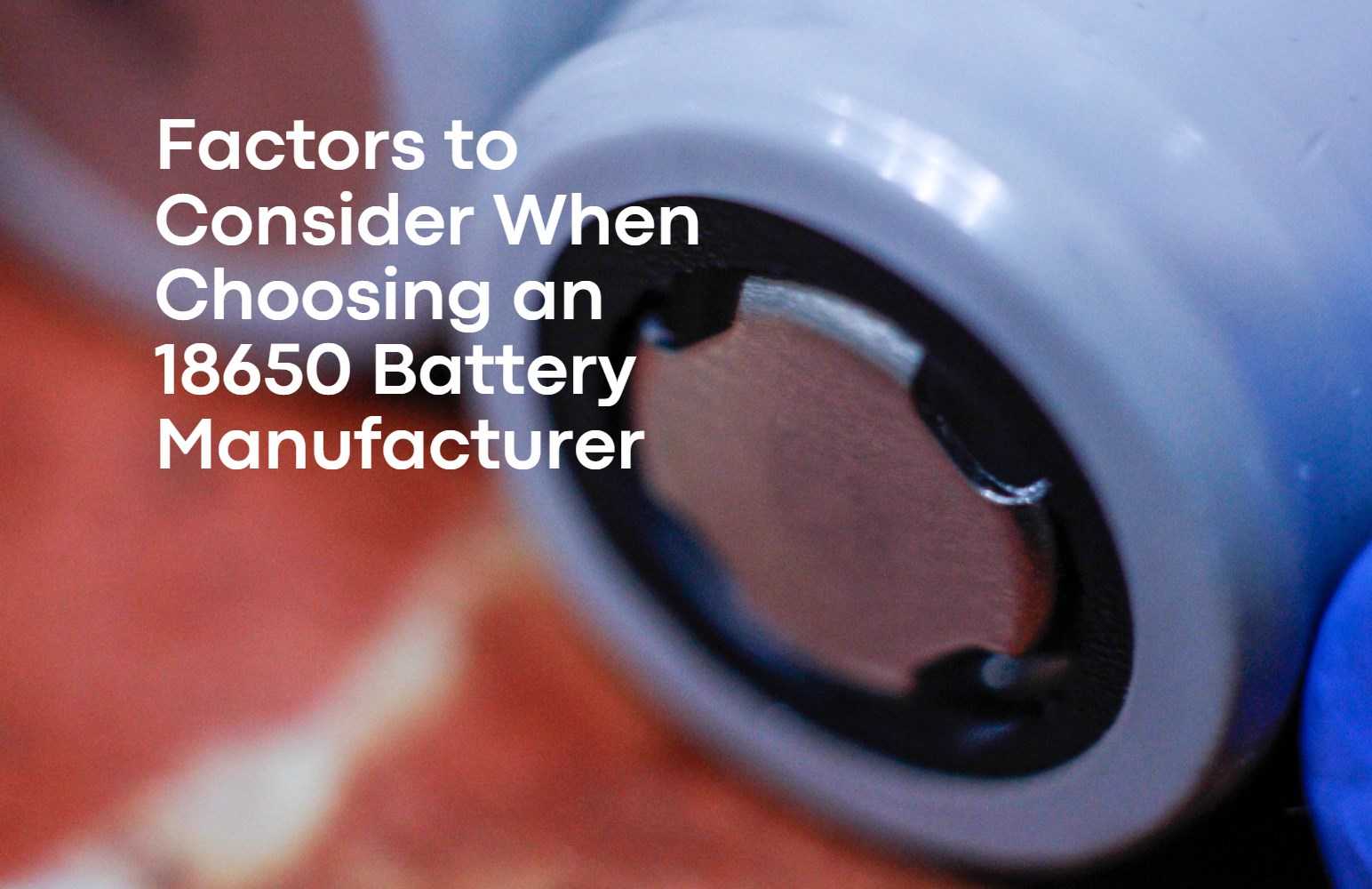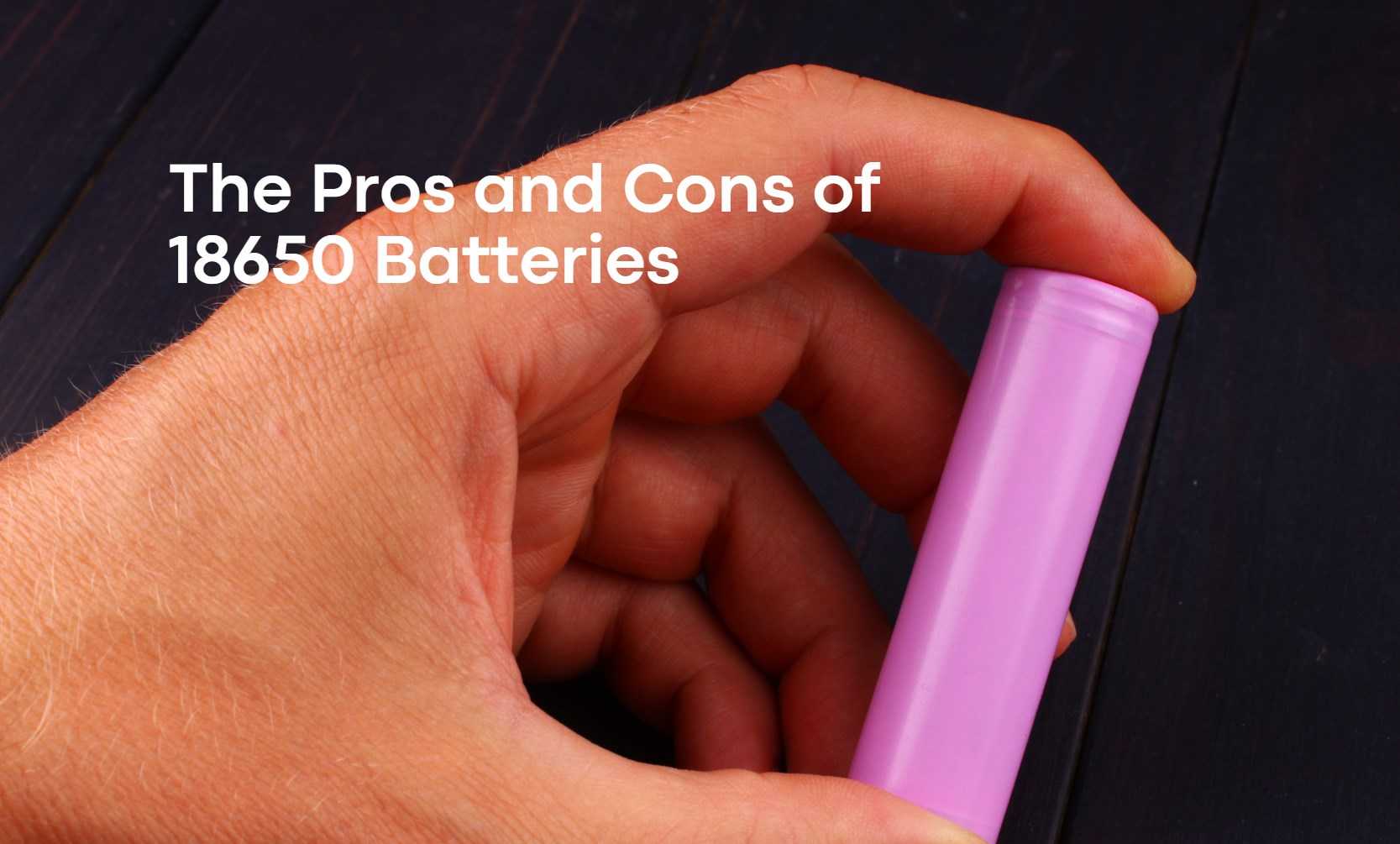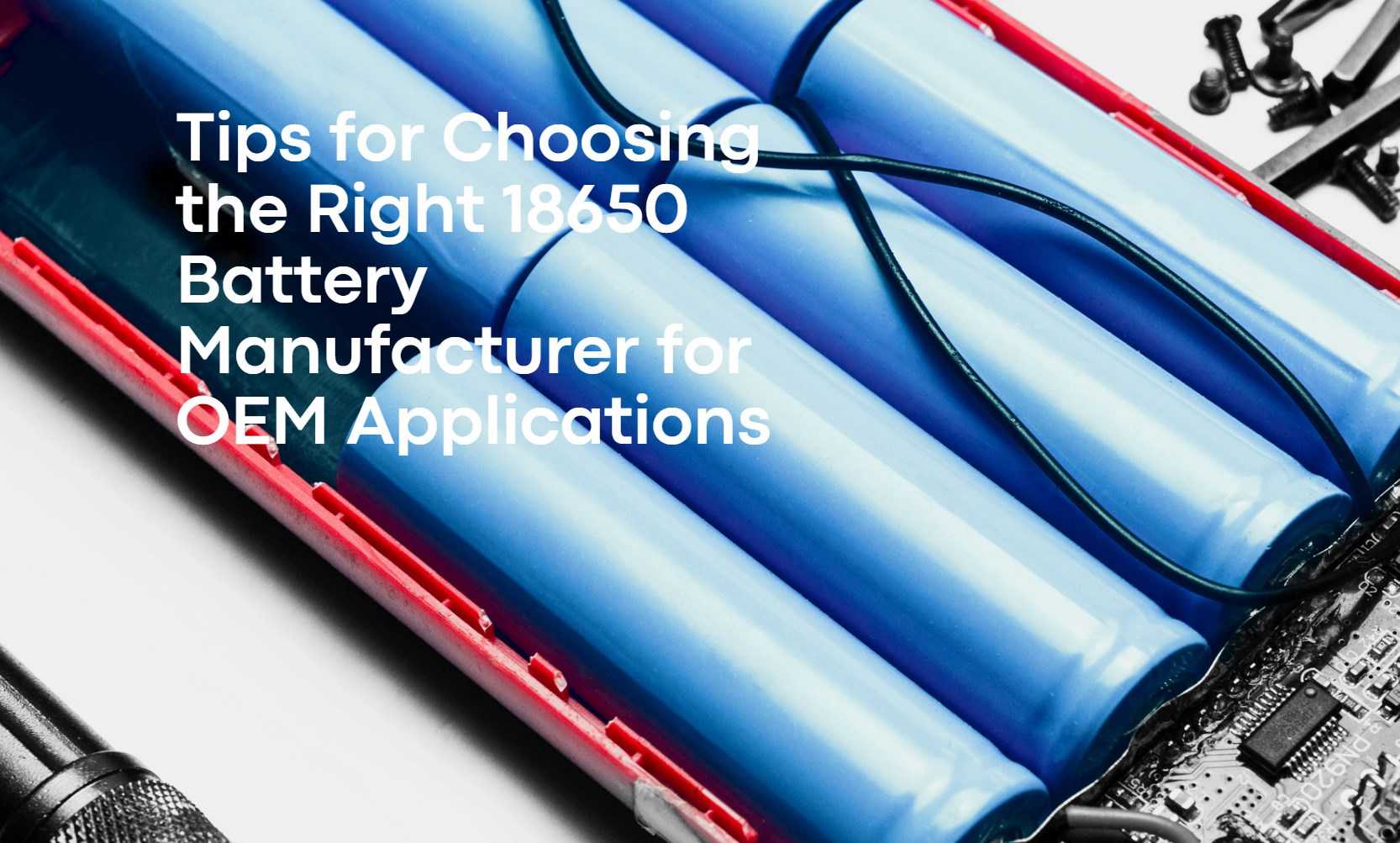Tips for Choosing the Right 18650 Battery Manufacturer for OEM Applications: Consider reputation, support, industry experience, and certifications. Understand battery types like lithium-ion, lithium iron phosphate, and nickel-metal hydride. Assess pros like high capacity and cons like cost and safety risks. Choose based on capacity, discharge rate, size, shape, and manufacturer reliability. Ensure compliance with safety standards for optimal performance.
Factors to Consider When Choosing an 18650 Battery Manufacturer
When choosing an 18650 battery manufacturer, consider factors such as capacity, voltage, chemistry, brand reputation, operating temperature range, price vs. quality, and certifications. Capacity determines energy storage, voltage should match device requirements, and chemistry impacts performance. Look for reputable brands, consider operating temperature range, balance price and quality, and ensure compliance with relevant certifications. Choosing the right manufacturer ensures reliable and high-quality 18650 batteries for your needs.
Another key consideration is the level of support that the manufacturer can provide. This includes technical support during product development, as well as ongoing customer service after the sale.
You should also look at whether the manufacturer has experience working with companies in your particular industry or niche. This can help ensure that they understand your specific needs and requirements.
Price is always a consideration when choosing any supplier, but it’s important not to make it the sole deciding factor. Cheaper isn’t always better if it comes at the expense of quality or reliability.
You should take into account any certifications or accreditations that the manufacturer holds. For example, ISO 9001 certification indicates a commitment to quality management systems which could give you greater peace of mind when working with them.

The Different Types of 18650 Batteries
There are two main types of 18650 batteries: protected and unprotected. Protected 18650 batteries have a built-in charge and discharge protection circuit, known as a BMS, PCB, or PCM. This circuit helps prevent overcharging, over-discharging, and short circuits. Unprotected 18650 batteries lack this built-in protection and are typically used in devices with their own protection mechanisms or high discharge rate requirements.
One type of 18650 battery is the lithium-ion (Li-ion) battery. These batteries have a high energy density, which allows them to deliver more power in a smaller form factor. They are commonly used in portable electronics like laptops, smartphones, and tablets.
Another type of 18650 battery is the lithium iron phosphate (LiFePO4) battery. These batteries have a longer lifespan than Li-ion batteries and can withstand higher discharge rates without losing capacity. They are often used in electric vehicles and solar power systems.
A third type of 18650 battery is the nickel-metal hydride (NiMH) battery. These batteries have a lower energy density than Li-ion or LiFePO4 batteries but offer better performance at low temperatures. They are commonly used in flashlights, toys, and other consumer electronics.
There are also hybrid 18650 batteries that combine elements from two or more types of cells to create custom solutions for specific applications.
Understanding the differences between these various types of 18650 batteries is essential when choosing the right one for your OEM application needs.
The Pros and Cons of 18650 Batteries
-
Advantages of 18650 Batteries:
- High Energy Density: 18650 batteries offer a high energy density, meaning they can store a significant amount of energy in a compact size. This makes them ideal for applications where space is limited.
- Long Cycle Life: These batteries have a relatively long cycle life, allowing them to be charged and discharged many times before their performance significantly degrades. This makes them a cost-effective choice in the long run.
- Rechargeable: 18650 batteries are rechargeable, which means they can be used multiple times, reducing waste and saving money compared to single-use batteries.
- Widely Adopted: Due to their favorable characteristics, 18650 batteries have been widely adopted in various industries, including electronics, electric vehicles, and power tools.
-
Disadvantages of 18650 Batteries:
- Temperature Sensitivity: 18650 batteries can be sensitive to temperature extremes. Their performance may be affected by low and high-temperature environments, leading to reduced efficiency and capacity. It’s important to consider the operating temperature range when using these batteries.
- Higher Cost: Compared to other battery types, 18650 batteries can be relatively more expensive, especially when considering high-capacity options. The cost factor should be considered when evaluating the overall budget for a project.
- Limited Shapes: The cylindrical shape of 18650 batteries may limit their use in certain devices or applications that require custom-shaped or flexible batteries. It’s essential to ensure compatibility with the device’s battery compartment or design requirements.

How to Choose the Right 18650 Battery for Your OEM Application
-
Brand Reputation: Start by choosing a reputable brand that has a proven track record in manufacturing high-quality and reliable batteries. Trusted brands often adhere to industry standards and provide consistent performance.
-
Capacity and Discharge Rating: Assess the capacity requirements of your OEM application. Higher capacity batteries offer longer run times, but keep in mind that they may be larger and heavier. Additionally, consider the discharge rating, which determines the battery’s ability to deliver current. Match the battery’s capacity and discharge rating to your application’s power requirements.
-
Voltage Compatibility: Verify that the battery’s voltage matches the voltage requirements of your OEM device. Using a battery with the wrong voltage can lead to compatibility issues and potential damage to your device. Ensure a seamless integration by selecting a battery with the correct voltage.
-
Temperature Considerations: Evaluate the operating temperature range of the battery. Some applications may expose the battery to extreme temperatures, either high or low. Choose a battery that can withstand these temperature extremes without compromising performance or safety.
Conclusion
To sum up, choosing the right 18650 battery manufacturer for your OEM application can be a daunting task. However, if you consider factors such as quality, price, delivery time and customer support, you are sure to find the right match. Remember to choose a manufacturer who offers custom solutions that meet your unique needs.
It is also important to note that different types of 18650 batteries have their own pros and cons. So make sure you understand these before making any final decisions.
Once you have found the perfect manufacturer and type of battery for your project, ensure that it is installed properly by professionals. This will guarantee optimal performance and longevity.
Intrinsically safe lithium-ion batteries play an important role in many industries today thanks to their high energy density and long life cycles. With this guide on how to choose the right 18650 battery manufacturer for OEM applications in mind, we hope you can make an informed decision when selecting one for your specific needs.




